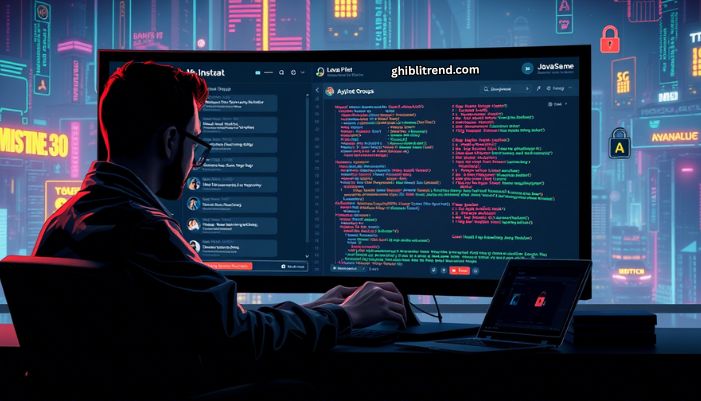TheJavaSea.me AIO-TLP287 Leak Explained 2025
Have you seen the term TheJavaSea.me leaks AIO-TLP287 online and wondered what it means? If yes, you’re not alone. This phrase has been floating around the internet and got a lot of people curious.
In this post, we’ll break it all down in a clear and simple way. You’ll learn what the leak was, why it matters, and how it could affect you or others who use online tools. Whether you’re a developer, a tech lover, or just someone who wants to stay informed, this article will help you understand everything easily.
What Is the AIO-TLP287 Leak?
A Closer Look at the Name
Let’s keep it simple. TheJavaSea.me seems to be a website where digital files are sometimes shared—often without permission. The part called AIO-TLP287 is likely the name of a tool, software bundle, or some kind of system setup. Think of it as a folder filled with tech stuff—maybe scripts, code, or secret settings.
Why People Are Talking About It
The leak got attention because it might include private or sensitive files. When these types of files get shared without permission, it can cause trouble. People might copy the files, use them to break into systems, or steal ideas.
How Did the Leak Happen?

Spread Through Private Groups
At first, it seems like the leak showed up in small online groups. These might be places like chat apps or private forums. But it didn’t stay private for long. Soon after, someone uploaded the files to TheJavaSea.me, where anyone could see or download them.
What Might Be in the Leak?
So, what could be inside? While we don’t know everything, people who saw the files say they might include:
- Pieces of source code (which is like the recipe for software)
- Internal settings or tools
- Keys or codes that connect to other systems
- Lists of users or login data
If true, that’s a big deal.
Read: traceloans.com Credit Score Tips to Get Better Loans in 2025
Why the Leak Is a Problem
It’s Bad for Developers
If you helped build the software or worked on AIO-TLP287, this leak could be serious. People might use the info to copy your work, find weak spots, or even break your system.
It’s Risky for Users
If you use any app or service made with the AIO-TLP287 system, your data could be at risk too. Hackers could use the leaked info to trick the app or send fake requests.
It’s a Puzzle for Security Experts
Some security researchers might want to study the leak to learn more about it. But they have to be careful. Using leaked files could get them in legal trouble.
What Should You Do Now?

Look for Official Updates
Check if the makers of AIO-TLP287 or connected tools have said anything. They might have posted a warning or a fix. This can help you stay safe.
Update All Your Tools
If you think you use a tool or app linked to AIO-TLP287, update it right away. Updates often fix problems that hackers could use.
Be Careful With Your Info
Change your passwords if you feel unsure. Also, turn on two-step login (2FA) where you can. It adds an extra layer of safety. And if anything seems strange—like a weird login alert—don’t ignore it.
What This Tells Us About the Tech World
Leaks Happen Fast Now
In the past, leaks might spread slowly through forums. Now, a file can go from one small group to thousands of people in minutes. That’s what seems to have happened here.
A Lesson for Everyone
This leak shows why it’s important to protect data. Whether you’re writing code or just using an app, strong security helps everyone.
FAQs About TheJavaSea.me and AIO-TLP287
Conclusion
The AIO-TLP287 leak on TheJavaSea.me is more than just a headline. It shows how fast tech leaks can spread, and how they can affect both developers and users. If you write code, test tools, or just use apps, leaks like this are a reminder to stay careful.
Make sure your software is up to date. Use strong passwords. Be aware of what’s happening in the tech world.